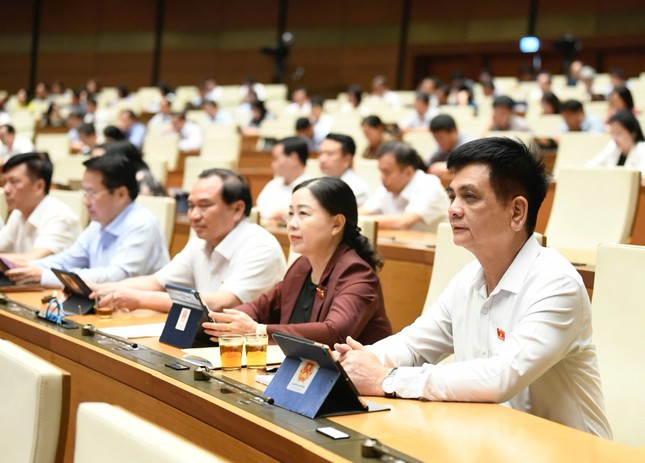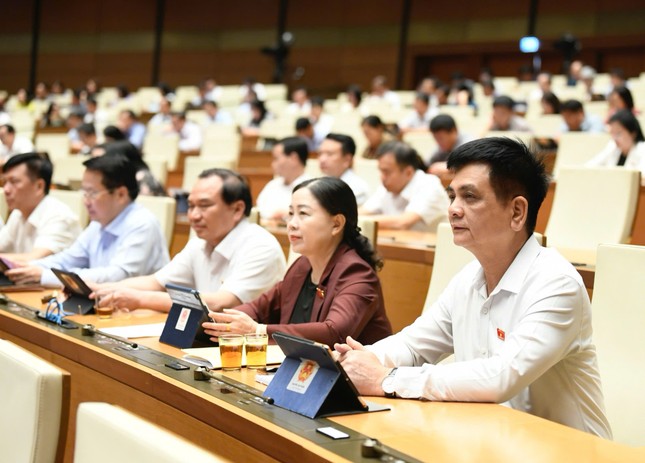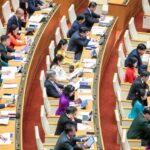During the group discussion, Minister of Home Affairs Pham Thi Thanh Tra shared that the amended Law on Local Government Organization focuses on four key areas.
Firstly, the establishment of a two-tier local government model, comprising the provincial level (province or city) and the communal level (commune, ward, or special district), replacing the current three-tier structure.

Today, the National Assembly will discuss two matters related to civil servants and local government organization. Photo: Nhu Y
The second key area is the clear delineation of authority, tasks, and powers for each level of local government. This is both a continuation and a fundamental innovation. The tasks and powers of the current district level will be transferred to the new commune and ward level, with additional decentralization from the provincial level.
Thirdly, there is a focus on thoroughly implementing decentralization and delegation of power. This content was emphasized during the law amendment in February and is now being further deepened and radicalized.
Fourthly, according to Minister Tra, is addressing the challenges associated with transitioning from a three-tier to a two-tier local government structure.
The bill proposes nine transitional provisions to comprehensively address all issues arising from the implementation of the new model, including the cessation of district-level operations from July 1st.
Regarding the Law on Civil Servants, Minister Tra noted that this amendment introduces fundamental, synchronous, and comprehensive innovations. It establishes the position of employment as the central and core element, determining various related matters.
Notably, the draft law has abolished promotion examinations and the one-year probationary period for civil servant recruitment. According to Ms. Tra, this is “certainly a joyful matter for civil servants.”
The New Congress: A Proposal to Shorten Term Lengths and Fast-Track Elections
As the 9th session of the 15th National Assembly enters its second week, lawmakers are focused on discussing and deliberating on the proposed amendments to the Law on Election of Deputies to the National Assembly and People’s Councils. This important piece of legislation is a key focus for the assembly, as it aims to ensure fair and equitable elections that truly represent the will of the people. The discussions are centered around ensuring that the election process is accessible, inclusive, and reflective of the diverse nature of our great nation.
The Speaker: In Many Places, Only a Change in Party Secretary or Chairman Results in Alterations to Urban Planning
“The Speaker of the House expressed concern over the lack of long-term vision in provincial planning. He noted that the efforts of the current secretary and chairman to develop a comprehensive plan might be undone by the next administration, leading to a constant cycle of changes with little stability.”
The Ministry of Home Affairs Proposes Provincial People’s Committees to Decide on Regional Minimum Wages
The Provincial People’s Committee shall take into account the socio-economic conditions of each commune and ward to select and decide on the application of specific regional minimum wage levels for these areas.





















